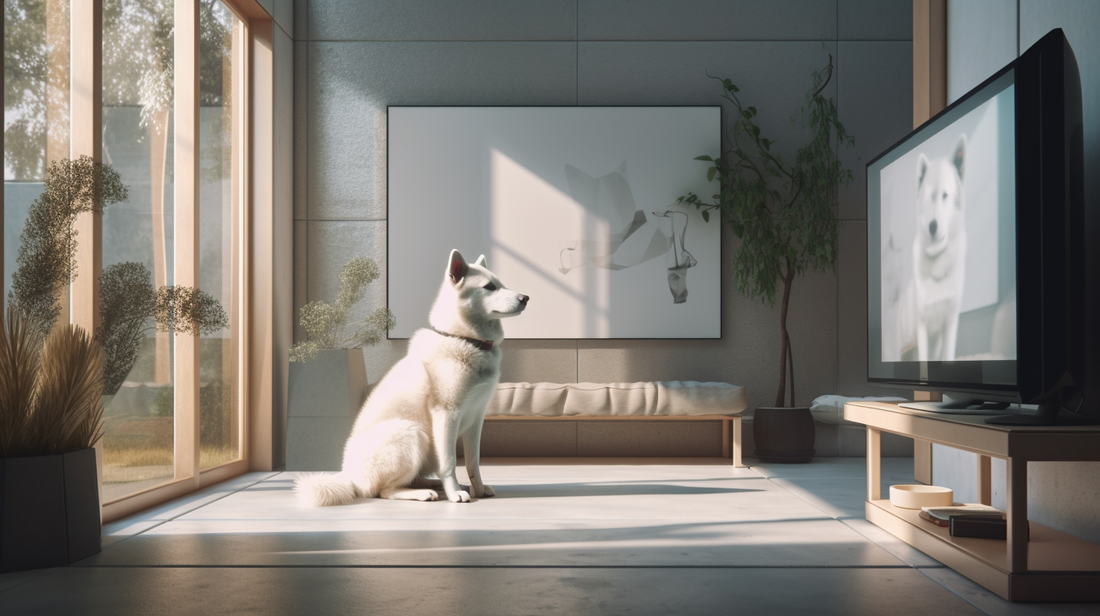
Don't Try This At Home: What Are The Risks of Copying TV Dog Trainers?
As a dog owner, it's natural to want the very best for our furry friends. We want to see them grow and develop in a way that will make them healthy and happy. In recent years there's been a wide variety of dog training TV series' and canine-based entertainment programming, with shows such as It's Me or The Dog (led by Victoria Stilwell), Graeme Hall's Dogs Behaving Badly, Paul O'Grady's For the Love of Dogs and even hybrid formats such as 'The Dog House' where dogs and their owners are matched, to hopefully spark a romance (and maybe even fall in love - how did this one slip under our radar?!)
 All the world's a stage
All the world's a stage
Many of these shows and the storylines within them will follow a basic three act structure:
- Act 1 - We are presented with a dastardly dog who delights in causing canine chaos. The owners are at their wits end and don't know what to do -will they have to re-home their beloved pet?
- Act 2 - Our hero dog trainer arrives to turn this dire situation around (hurrah!). The owners are given a series of tools and techniques to address their dog's despicable behaviour...
- Act 3 - The dog is fixed and everyone is thrilled. The end.
A heartwarming tale... However, there are times when we might see certain training techniques on TV or online that we think could benefit our dogs at home, but we must remember that not all training techniques are safe or appropriate.

With the explosion of professionally produced content on YouTube over the last decade, more dog trainers have taken to the streaming giant to build a following and extend their reach. It's fair to say there are far fewer hoops for online content creators to jump through (compared to traditional media such as television) so there's much more scope for creators to showcase dogs with even more challenging behaviours and the techniques they deploy to try and help fix the situation.
Many of us may have seen content which showcases extreme dog training techniques, and while this kind of "training" can be fascinating to watch, it can also be very dangerous if we try to replicate at home. These sort of videos could inspire others to start their very own canine academy at home, testing out different techniques without fully recognising the damage they could be doing until it's too late.
It's important to remember that not all dogs are the same. Each dog has a unique personality and temperament, and what works for one dog may not work for another. Furthermore, some dogs may have underlying behavioural issues that require specific training methods, which can only be correctly determined by a trained professional.
Attempting to train a dog without proper guidance can be dangerous, not only for the dog but also for the owner. Training techniques that are not appropriate can lead to physical and emotional harm to the dog, and the owner may end up with a dog that is even more difficult to manage.
 Media Pawfessionals
Media Pawfessionals
Another point to consider is that the content within a TV or YouTube episode will generally have been crafted by a team of media professionals who will have spent years refining their storytelling craft. Beautiful cinematography, stirring music, thoughtful scripting, emotive interviews and careful edits, all come together to create a stunning piece of entertainment. The skill and talent to create such a show should be celebrated and awarded, however, the viewer should keep in mind that the underlying purpose of the content is to create a sense of entertainment.
This week sees the beginning of a new series on Channel 4, 'The Dog Academy' (watch the trailer here) and we're excited to see dogs who are in need of training, receiving the help they so desperately need. We are hopeful that the show will demonstrate techniques in a responsible, safe manner and make it clear to the dog-loving audience that they should carefully consider the risks before attempting training at home.
Our advice: The dog-loving public should be wary about plucking dog training tips from shows which are created in the pursuit of providing entertainment. In the same way that watching an F1 race doesn't qualify someone to go out and drive like a racing driver, attempting dog training techniques learned from a tv show could lead to an incredibly dangerous situation.
If you are looking to train your dog, it is essential to seek the expertise of a professional dog trainer who can provide you with appropriate and safe training techniques. These professionals have the knowledge and experience to identify and address behavioural issues while keeping the dog's physical and emotional well-being in mind. Consider options such as puppy training, behaviour and obedience training, home visit training, and residential training offered by reputable organisations.
In conclusion: While TV shows can be informative and entertaining, it is vital to remember that not all training techniques are safe or appropriate for our furry friends, and you are ultimately watching an entertainment programme, not an educational one. Remeber that on TV there will be a team of people behind the scenes and edits can make training seem much faster and easier than it really is. Attempting to train a dog without proper guidance can lead to dangerous situations and long-term behavioural issues. Always seek the guidance of a professional dog trainer for safe and effective training techniques. Remember, when it comes to dog behaviour training, it's best not to try this at home... especially not without proper guidance!
For more information and resources on dog training, check out the following articles and guides:
- How to find a good dog breeder
- Selecting the right puppy
- The cost of dog training
- Treat training and its potential dangers
- How good is my dog?
- Dog toys and how to choose the right one for your dog
A little bit about us: The Dog Training Company was established in 2008 and has five dog training centres across Yorkshire. We're incredibly proud of our truly unique training system which represents more than 30 years of handling, showing and teaching over 5000 dogs. Begin your training journey by booking a 1-hour assessment at one of our training centres.

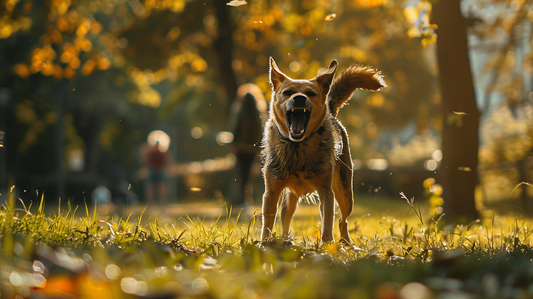
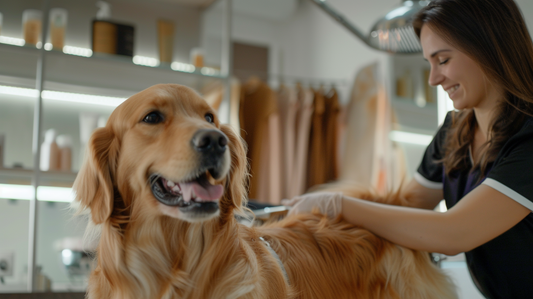


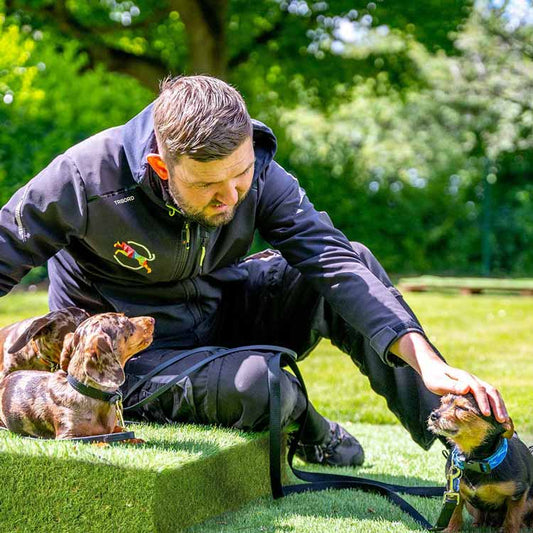
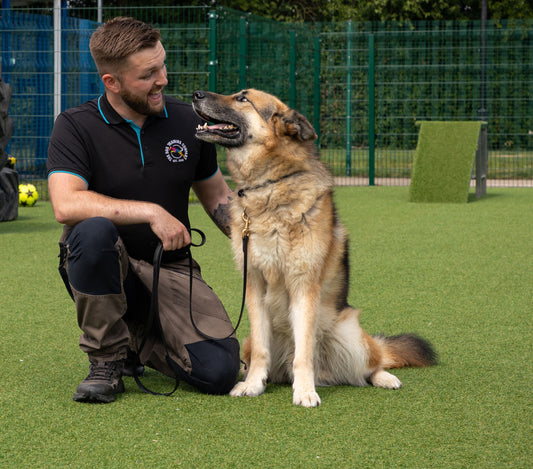
1 comment
This post is so true, I watched so many YouTube videos before I found you guys and felt like my head was going to pop with all the conflicting information. Also, the time scale that online videos/tv shows give is completely unrealistic and I’m yet to find one that gives an honest depiction of just how long it can take to turn around a dogs learned behaviour which in turn makes is so disheartening when you still find problems even when you’re weeks down the line. Like you said, all dogs are different and timescales will therefore always vary.